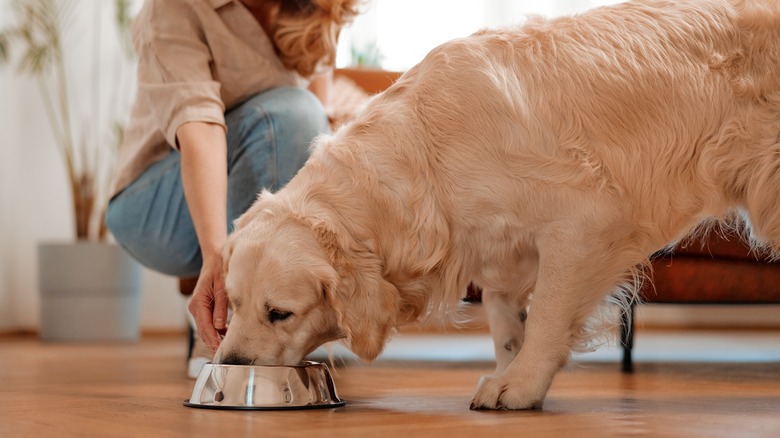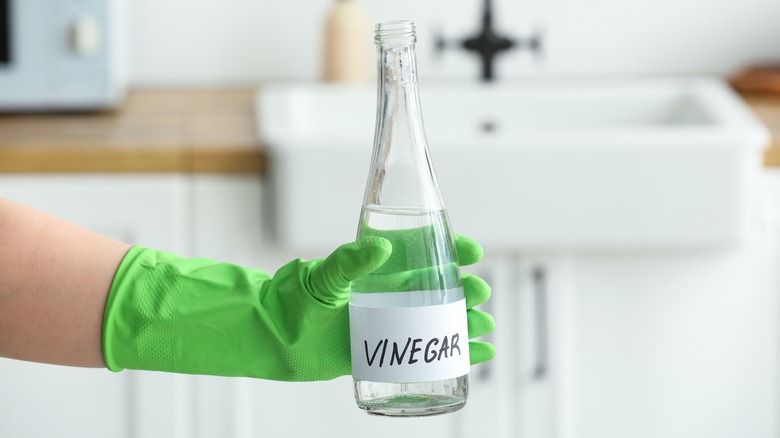This Vinegar Trick Will Bring Your Pet's Grimy Food & Water Bowls Back To Life
If you have a pet, you know how grimy and dirty their food and water bowls can get. From leftover food, saliva, and fur to grime and dirt, our furry friends' dishes become gross quickly. Cleaning and disinfecting your pet's food and water bowls is essential to keeping them healthy and happy, and they are one of the things in your house you should be cleaning daily. However, using the wrong cleaning products can be just as damaging to dogs and cats as the dirt and germs. Most people just use regular dish soap to clean their pet's dishes, but while this will clean the surface, it won't kill bacteria. The bowls may also have some stuck-on grime that's hard to scrub off with just dish soap. Instead, keep your pet's food and water bowls clean and germ-free with vinegar, the most versatile cleaning tool in our homes. The trick is to soak your cleaned pet's food and water bowls in vinegar.
Vinegar's natural acetic acid content safely disinfects, killing some of the dangerous bacteria and microbes that can lead to illness and disease in pets. This vigorous multi-purpose cleaner also has antifungal properties that prevent mold from forming, which is particularly important for the stagnant water sitting in our pets' water bowls all day. In addition to disinfecting, vinegar can help polish up water bowls that are riddled with hard water buildup.
How to clean your pet's bowls with vinegar
Since vinegar has natural disinfectant properties, it doesn't take much effort when using it to remove residue and germs. Simply clean your pet's bowls like normal with dish soap, soak them in vinegar for around 15 minutes to get the maximum disinfecting and cleaning power, and then rinse them off with hot water and allow them to dry fully. While you should clean the bowls daily, you can soak them in vinegar about once a week. If your bowls need a bit of elbow grease to remove tough stains or stubborn food, you can scrub the surface with vinegar and a sponge or cloth (though avoid metal scrubbers if the pet bowls are stainless steel). Always rinse them with hot water and let them dry after scrubbing.
Opt for this vinegar trick over potentially toxic household cleaners to keep your pets safe and healthy. Our furry family members are intolerant to materials found in many household cleaning products. Ammonia, benzalkonium chloride, bleach, formaldehyde, glycol ethers, and even fragrances including essential oils are toxic to pets. Also, choose the right type of vinegar for cleaning your pet's food and water bowls. While there are many varieties of vinegars, white distilled vinegar, the all-around ideal vinegar for cleaning purposes, and apple cider vinegar (ACV) are recommended for use on your pet's eating and drinking surfaces.

